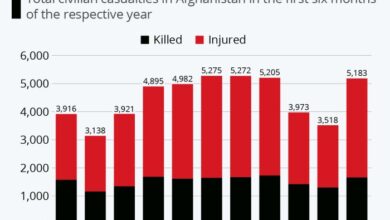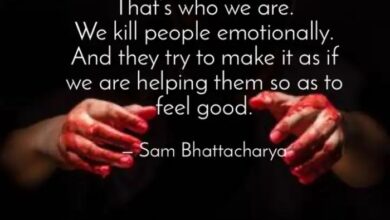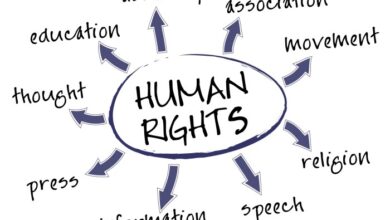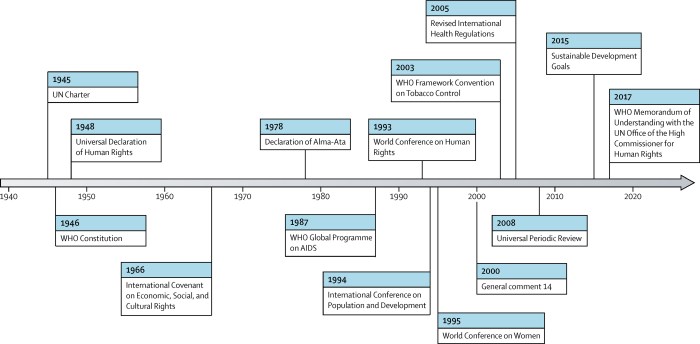
A Chronology of the Global Human Rights Struggle: From Ancient Origins to the 21st Century
A chronology of the global human rights struggle paints a vibrant and complex tapestry, woven with threads of hope, defiance, and progress. It’s a journey through time, where we witness the evolution of human rights concepts from their ancient roots to the contemporary challenges we face today.
From the earliest declarations of individual rights in ancient civilizations to the landmark Universal Declaration of Human Rights, this historical narrative reveals the enduring human desire for dignity, freedom, and equality.
This journey takes us through pivotal moments in history, where individuals and movements fought tirelessly for justice and recognition. We’ll explore the impact of Enlightenment thinkers, the tumultuous Cold War era, and the rise of international human rights law. We’ll examine how globalization and technological advancements continue to shape the human rights landscape in the 21st century.
This exploration invites us to consider the challenges we face today, and the crucial role we all play in advocating for a future where human rights are truly universal and respected.
Future Directions for Human Rights: A Chronology Of The Global Human Rights Struggle
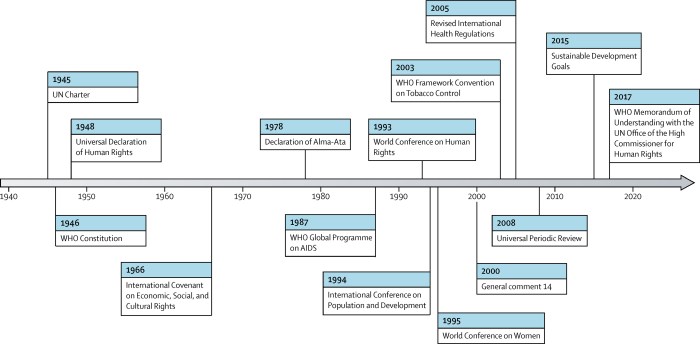
The human rights landscape is constantly evolving, shaped by new technologies, global interconnectedness, and shifting political dynamics. As we navigate the 21st century, understanding emerging trends and potential challenges is crucial for ensuring a future where human rights are universally respected and protected.
Emerging Trends and Challenges
The future of human rights is intertwined with emerging trends that present both opportunities and challenges. These trends include advancements in technology, climate change, and increasing inequality, all of which have profound implications for the realization of human rights.
- Technology and Human Rights:Advancements in artificial intelligence (AI), biotechnology, and surveillance technologies are transforming societies. While these technologies hold the potential to improve human lives, they also raise concerns about privacy, discrimination, and the erosion of fundamental rights. For example, facial recognition technology has been used for surveillance and profiling, raising concerns about the potential for misuse and discrimination.
- Climate Change and Human Rights:Climate change is already impacting human rights around the world, particularly the rights to life, health, food, and water. Extreme weather events, rising sea levels, and resource scarcity are displacing communities and exacerbating existing inequalities. The challenge lies in ensuring that climate action is undertaken in a way that respects human rights and protects vulnerable populations.
- Inequality and Human Rights:Global inequality is widening, with a growing gap between the rich and the poor. This trend poses a significant challenge to human rights, as it undermines the ability of marginalized communities to access essential services, participate in decision-making, and enjoy their rights on an equal footing.
A Roadmap for Universal Respect for Human Rights, A chronology of the global human rights struggle
Achieving universal respect for human rights in the 21st century requires a multifaceted approach that addresses the emerging trends and challenges. This roadmap Artikels key steps towards this goal:
- Strengthening International Cooperation:International cooperation is essential for addressing global challenges and ensuring the universality of human rights. This includes strengthening existing institutions, such as the United Nations, and fostering collaboration between states, civil society organizations, and other stakeholders.
- Promoting Inclusive Development:Development strategies should prioritize inclusivity and ensure that all individuals, regardless of their background, have the opportunity to benefit from economic and social progress. This requires addressing systemic inequalities and promoting equitable access to resources, education, and healthcare.
- Promoting Human Rights Education:Educating individuals about their rights and responsibilities is crucial for building a culture of respect for human rights. This includes promoting human rights education in schools, workplaces, and communities, as well as supporting initiatives that raise awareness about human rights issues.
- Holding States Accountable:States have a primary responsibility to uphold human rights, and they must be held accountable for their actions. This includes strengthening mechanisms for monitoring and reporting on human rights violations, as well as ensuring access to justice for victims of abuse.
- Promoting Technology for Good:The development and deployment of new technologies should be guided by human rights principles. This includes ensuring that technologies are designed and used in a way that respects privacy, promotes equality, and does not undermine fundamental rights.
Tracing the global human rights struggle is a complex journey, one that often overlooks the nuanced interactions between East and West. A deeper understanding of this relationship, perhaps through an alternative view of east west history , can illuminate how these regions have both contributed to and been impacted by the broader fight for universal rights.
This perspective allows us to move beyond simplistic narratives and appreciate the multifaceted nature of this historical struggle.
Tracing the global human rights struggle is a journey through countless battles, from the abolition of slavery to the fight for LGBTQ+ equality. Each victory, however, often reveals new challenges, like the insidious manipulation of propaganda in modern conflicts.
The rise of misinformation, as seen in the prop agenda at war , poses a significant threat to human rights, hindering progress and perpetuating injustices. This highlights the need for a vigilant and informed approach to ensure that the pursuit of human rights remains a constant and unwavering endeavor.
Tracing the chronology of the global human rights struggle reveals a complex tapestry of triumphs and setbacks. The issue of Iraq weapons inspections double standards exemplifies the challenges of applying universal principles to diverse contexts, raising questions about the motivations and justifications for intervention.
This historical struggle for human rights continues to evolve, demanding constant vigilance and a commitment to upholding the inherent dignity of all people.

